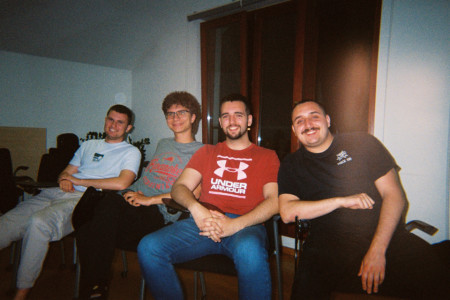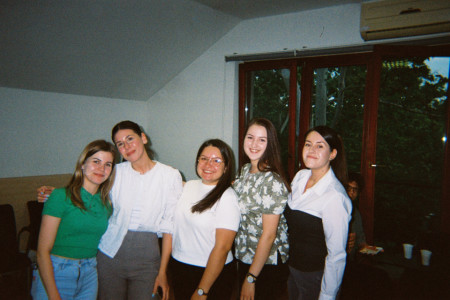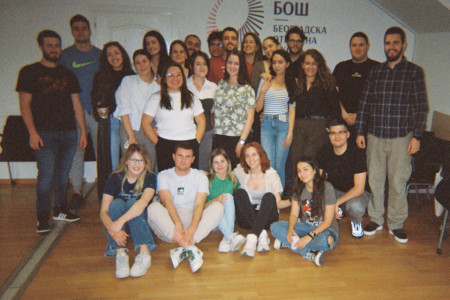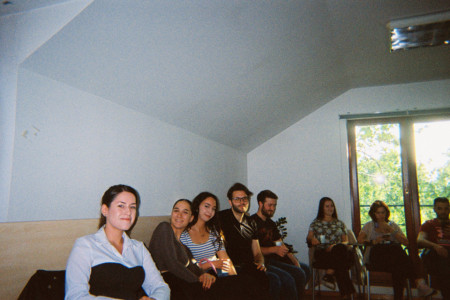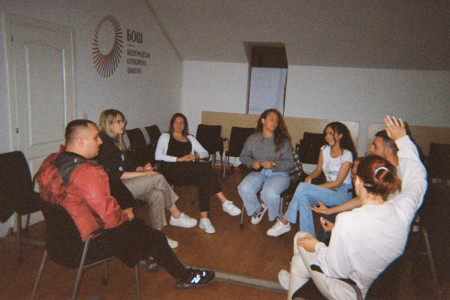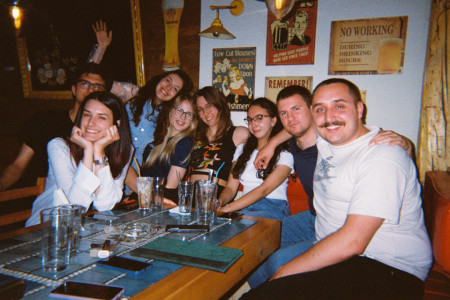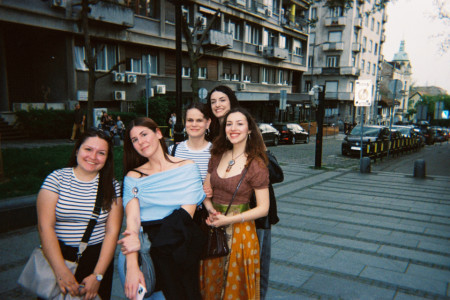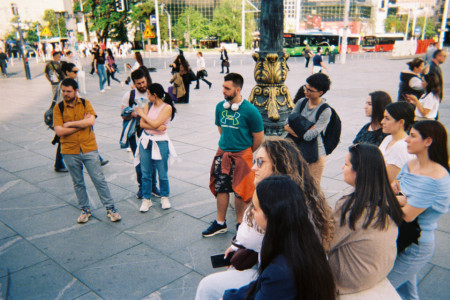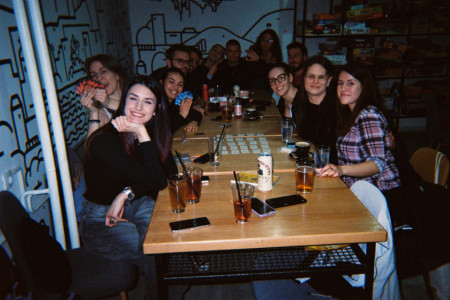Spring Semester Recap of the Future Studies Program: Career Development and Insight into a New World
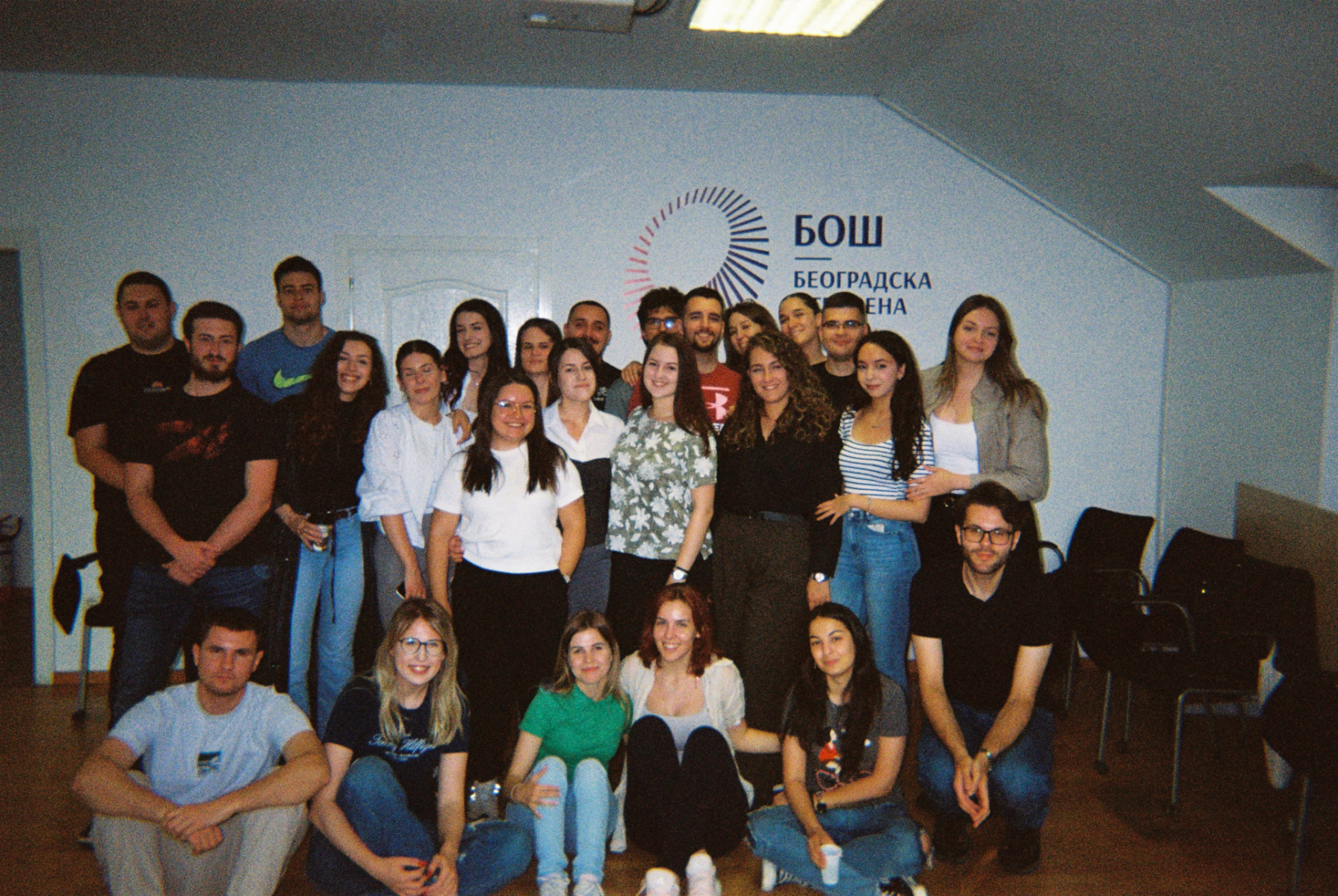
During the spring semester of the Future Studies program, participants had the opportunity to deepen their understanding of contemporary society, the labor market, and technological changes through two thematic modules - Career Management and The New World. They were also encouraged to reflect on their own professional paths.
Career Management
The semester began with a study visit to Coca-Cola HBC, where students toured the production facilities and attended a lecture on working in large systems, setting personal career goals, and understanding one’s own work style.
The introductory workshop was led by Marija Milosavljević, encouraging participants to design their desired career paths.
Andrea Darabašić conducted two practical workshops covering key topics for entering the job market - from CV writing and LinkedIn profile optimization, to understanding job ads and preparing for first work experiences. Topics included giving and receiving feedback, setting boundaries, and showcasing potential in entry-level positions.
Special focus was given to job interviews through workshops led by Ana Ivanov and Nikolina Novaković, where students participated in interview simulations.
The module also included a lecture on labor law, helping students gain a practical understanding of their rights and obligations in the world of work.
Dejan Živković spoke about the importance of mental health in the workplace, addressing how to recognize challenges, break stigma, and build supportive work environments.
To conclude the module, Nikola Vuković shared his entrepreneurial story, shedding light on initiative, failure, and learning in building a personal business identity.
The New World
In the second module, students explored global changes, technologies, and social trends shaping the future.
Jovan Radaković gave a talk on cybersecurity, using real-world examples of cyberattacks and offering advice on data protection in the digital world.
Vladimir Međak provided a detailed overview of Serbia’s path toward European integration - highlighting key obstacles, achievements, and ongoing challenges in the EU accession process.
Dalibor Petrović introduced the concept of surveillance capitalism, critically examining everyday technology use and privacy issues.
Lav Kozakijević introduced students to the world of the video game industry, showing how gaming is reshaping the economy, society, and related industries.
Darko Donevski spoke about modern astronomy, raising questions about the cosmos, scientific discoveries, and the influence of politics on research.
The architecture of Belgrade was explored in a walking tour and lecture by Ana Samardžić, who analyzed the city's visual identity- from its past to its future.
Artificial intelligence was discussed from two perspectives: Uroš Krčadinac explained the technical foundations and neural networks, while Luka Aničin focused on the social implications and the impact of AI on the labor market.
The semester concluded with a lecture by Milan Stojanović on film production in Europe, raising the question of how creative industries survive in an age of uncertainty - with the message that hope and adaptability remain essential tools for creators.
Final Segment: Reflection Through Mentorship
At the very end of the semester, students presented their final reports on the mentorship process. Mentorship is a vital part of the Future Studies program, and we’re especially pleased that this semester brought about many diverse and successful collaborations.
Students worked with their mentors in a variety of formats and areas - from academic work and project writing to entrepreneurship and business, career counseling, job application preparation, and involvement in their mentors’ personal and professional projects.
These experiences demonstrate how much individual support and mentorship can contribute to both personal and professional growth - which is precisely the essence of the Future Studies program.

 381 63 687 763
381 63 687 763








